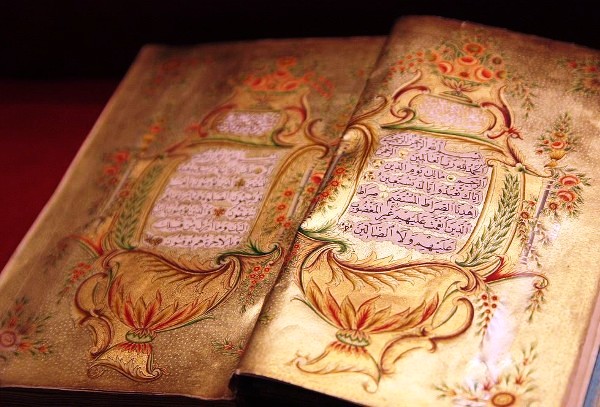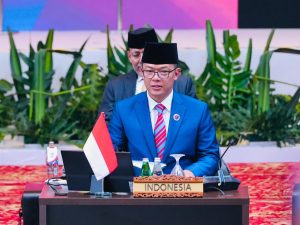The closest of the people to Ibrahim are those who follow him. (3:68)
And We set in the hearts of those who followed him (Jesus) tenderness and mercy. (57:27)
And warn the people of the day when the punishment comes on them and those who did evil shall say: Our Lord, defer us to a near term and we shall respond to Your call and shall follow the messengers. (14:44)
And We did not appoint the Qiblah on which you were earlier, but that We might know the people who follow the Messenger as distinct from those who turn back on their heels. (2:143)
Also Read: Egypt, Qatar Deliver Trump’s Gaza Ceasefire Proposal to Hamas
He said: My people, follow the messenger! (36:20)
(Hârûn said:) And your Lord is the Rahmaan (the All-Merciful), so follow me and obey my command. (20:90)
So they (the disbelievers) said: Shall we follow a single human being from among us? Then, indeed we should be in error and insanity. (54:24)
All these verses, with different styles and connotations, lay a strong emphasis on the necessity of “following the prophets” and indicate that whoever believes in a prophet is bound to “follow” him. The reason is obvious. The prophets are sent to the people to set a practical example of what they teach and preach. Their message is not confined to their oral teachings. Their acts are equally important in any effort to discover, learn and follow the right way of living. The Holy Qur’ân is quite explicit on this point when it was said in Surah al-Ahzaab:
Also Read: Israeli Airstrikes Kill 54 Palestinians Across Gaza
There is surely a good example for you in the Messenger of Allâh, for the one who hopes (to meet) Allâh and the Hereafter and remembers Allâh abundantly. (33:21)
It is an established fact that mere theoretical education cannot be sufficient for reforming a people. The natural way of reformation is to set a practical example which people may follow. Mere reading of books cannot make a person perfect in a science or art, unless he is simultaneously trained by a senior scholar or a skillful artist of that field. If somebody studies the books of medical science, but does not work under the supervision of an experienced doctor, he, despite his thorough study, cannot claim to serve as a doctor, nor can such a person be allowed to play with the lives of the patients.
If somebody studies books of law, he cannot claim to be a lawyer unless he acquires a practical training from a senior lawyer and remains for a considerable time under his juniorship.
Even a plain enthusiast who wants to cook a good meal cannot do so perfectly by merely studying the books written on the subject, although all the ingredients required for cooking the food are mentioned in the book and even the minute details of the process are fully described. But a person who has never cooked that meal before cannot prepare it just right and perfect with the sole help of a cookbook unless he is practically trained by some expert. That expert sets a practical example for him and he, by following the example, gradually learns how to cook that good meal.
Also Read: School Bus Explosion in Pakistan Kills Five, Military Accuses India
It clearly shows that human beings are always in need of a practical example in order to learn an important subject. The same is true in the matter of religious teaching and training.
That is why Allâh did not choose to send the divine books only. He always sent a messenger with the book. There are many prophets who came without a new divine book. But there is no divine book sent down without a prophet. The disbelievers of Makkah, too, demanded many times that the Book should be revealed to them without the mediation of the Holy Prophet (peace be upon him). But the demand was rejected and the Book was sent through the Holy Prophet (peace be upon him).
The reason is obvious. Humanity did not need a divine book only. It also needed a teacher who could teach them the contents of the Book. It also needed an instructor who could train them and could set a practical example for them without which they could not benefit from the Book in their practical life. It was for this reason that the Holy Prophet (peace be upon him) was sent with a clear direction to all human beings that they are bound to obey and follow him and to learn the details of Allâh’s pleasure through the practical example set before them by him.
It was also clarified in the foregoing verse of the Holy Book that the “obedience of the Messenger” is actually the “obedience of Allâh” and that the latter cannot be carried out except through the former, because whatever the Holy Prophet (peace be upon him) says or does in the capacity of a prophet is based on the revelation received by him from Allâh. Thus, his sayings and acts both, even though they are not contained in the Holy Qur’ân, are inspired or confirmed by the divine revelation. (T/P3/R01)
Also Read: Half a Million People in Gaza on the Risk of Starvation: IPC
Mi’raj Islamic News Agency (MINA)
This is an extract from the book “The Authority of Sunnah” by Justice Mufti Muhammad Taqi Usmani – Originally published by Kitab Bhavan, New Delhi, 1991. Reprinted in IQRA.
Sources:
1. ccm-inc.org (from the book “The Authority of Sunnah”)
Also Read: Israeli Captive Says “Only a Deal Will Bring Us Home”
2. http://muslimvillage.com/

































 Mina Indonesia
Mina Indonesia Mina Arabic
Mina Arabic